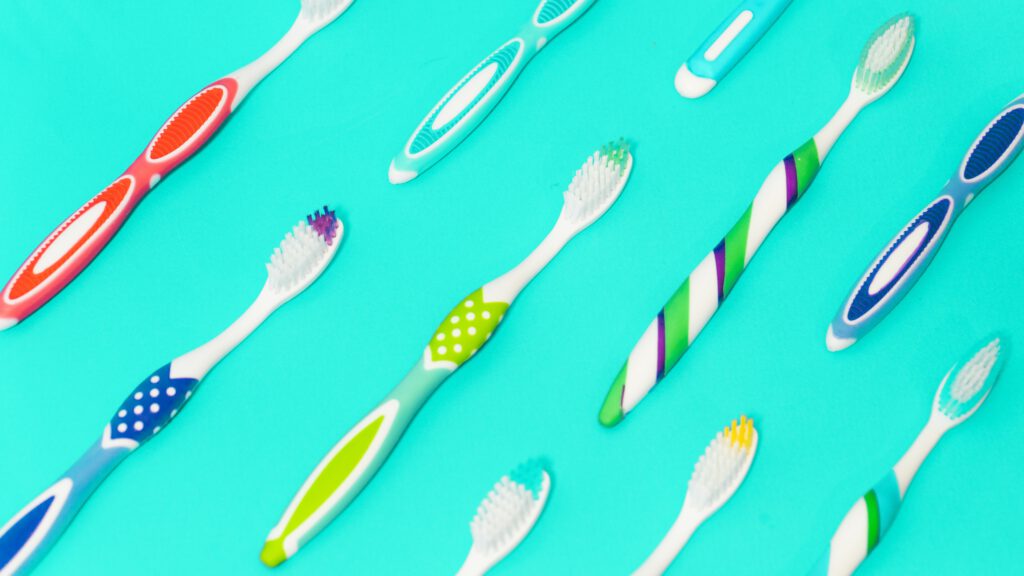Oral hygiene and caring for teeth in later years

Once upon a time on a visit to my bedridden dad at his care home, he asked if I would clean his teeth as the carers hadn’t had time to do so.
Of course, said I, and gathered up a bowl and some water, his toothbrush and toothpaste and a towel, ready for some in-mouth action. At that point he removed his plate and handed it to me. It is actually much easier to clean someone else’s teeth if they’re not in the mouth at the time, but it did take me a moment to get over the surprise.
That story is a lead in to considering the whole challenge of helping older people with their oral hygiene. Given that we know our teeth become weaker as we age, it is important to preserve what we’ve got for as long as we can. It’s sad to lose the ability to crunch – less alone chew – some of the tastiest foods we have always enjoyed. And, more worryingly, problems in the mouth can affect health in the rest of the body.
Caring for teeth can be harder for older people, who may have less dexterity generally, or conditions that can make the actual act of brushing and flossing harder. Some conditions may also make patients less cooperative.
What can carers in homes, caregivers at home, and dentists do to make oral hygiene as easy as possible?
Here are some useful tips we’ve gathered from a range of expert resources.
Preventative care
Sugar has long been the enemy of healthy teeth, but it may feel unkind to restrict access to sweets and other sugary treats in later life. A compromise could be to offer these treats at mealtimes, when a larger meal means more protective saliva being produced. And regular brushing will also help to resist the damaging effects of lingering bacteria.
In a care setting it’s not always obvious who is responsible for daily teeth cleaning and more advanced care. So have a chat with the care home staff about routines, and how residents can get access to dentists and hygienists. Ask about whether there’s an Oral Health Needs Assessment in place, says this cosmetic dentist in Avon Lake.
Choose a toothbrush that works for your relative. Small heads with soft brushes are regularly recommended for older people. Think about the toothpaste too. Some can be quite astringent and your relative may be more comfortable with a less ‘tasty’ version, so talk to a dentist or pharmacist.
Dentures
Dentures can be a nightmare to look after. My dad (always a source of good stories) came home from hospital with his own dentures and someone else’s. I don’t suppose that poor person ever got them back, even though I handed them in at the care home. So storing dentures hygienically and marking them with the owner’s name are important tasks.
People can be reluctant to wear their dentures because they’re uncomfortable. It’s worth having that conversation to see if the fit can be improved, or whether perhaps it’s a dry mouth that’s causing the problem. Checking the dentures regularly for cracks and making sure they’re not slipping can also help.
Dementia
Reassurance, gentleness combined with speed, and trial and error to find out what works are key here. Often those living with dementia will struggle to understand what you’re doing to them and why, so hand holding and explanations along the way can be useful.
Want to know more?
This article includes just a few of the nuggets of advice we’ve uncovered. You may like to follow up the following resources that are aimed at the care community, but have helpful advice for any caregivers or individuals who are looking after their own oral hygiene.
- Read our article on ‘What happens to teeth as we age?’
- Have a look at the ’Keep Smiling’ booklet produced by the Relatives and Residents Association.
- ‘Improving oral health for adults in care homes’ official NICE guidelines
- Find out about dental care NHS and private treatment from Age UK
- Find some strategies for helping people who resist dental care
- Help people with Parkinson’s Disease with their dental care
- Five tips from Which? on keeping teeth healthy at home
Article compiled by Kathy Lawrence, editor at When They Get Older and freelance writer
Photo by amirhosein esmaeili on Unsplash

